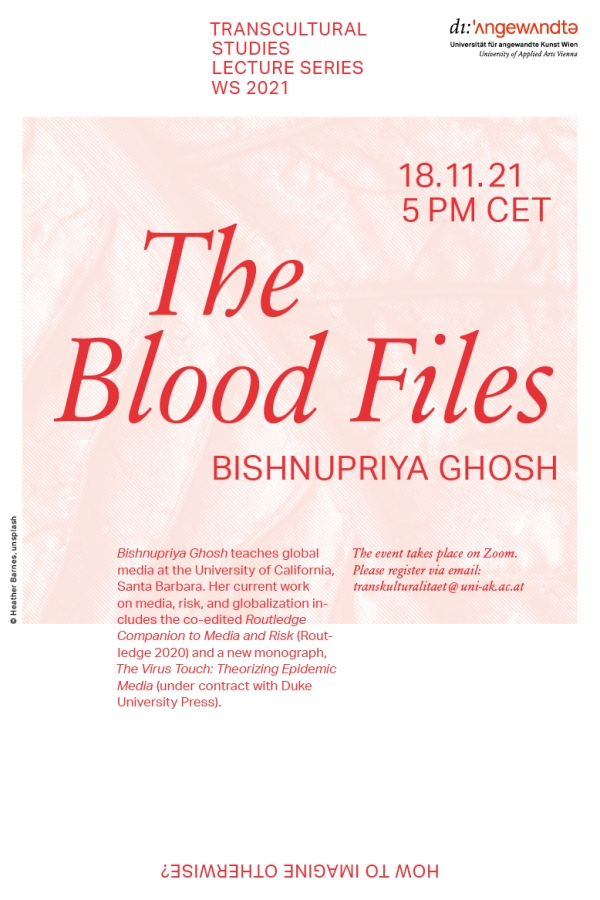Bishnupriya Ghosh addresses what “transculturality” might mean in context of the new
materialist turn in science studies. If the critical emphasis falls on the human and non-human interactions and relations,
this orientation directs our gaze to scientific practices that "make and "remake" objects like genes, toxins, or microbes.
Focusing on one vital medium, Ghosh examines its material construction in two forms: frozen blood samples (at biorepositories)
and patient blood pictures (at clinics), both necessary for tracking viral distributions in individual hosts.
Her
research concerns the chronic blood surveillance in the HIV/AIDS post-antiretrovitral era: blood samples and blood pictures
sequenced in the blood files are essential for keeping abreast of infection. Ghosh stops at three different settings where
blood is denatured and fabricated as it moves through the vast global public health infrastructure. One is the Center for
AIDS Research biorepository in Seattle and the others are two clinics, the Sanjeevani outfit (Mumbai) and the "HIV Adherence
Club" (Cape Town). Since "clinical translations" of blood produces very different compositions at these sites, one might ask:
How might transculturality inform our understanding of these forms? Where do the processes of clinical translation and transculturation
intersect?
Tracking this highly symbolic medium as it is denatured and fabricated requires close attention to the
different processes of “clinical translation” that construct blood differently at each site. Ghosh’s critical method probes
what technical-aesthetic compositions of this vital medium might imply for the ecological study of human and non-human relations.
What does blood rife with biotic and chemical agents tell us about our “emerging with” the environment? How does transculturality
as a conceptual framework enable such an ecological orientation open to unthinking anthropomorphism?
Bishnupriya
Ghosh teaches global media at the University of California, Santa Barbara. Her current work on media, risk, and globalization
includes the co-edited Routledge Companion to Media and Risk (Routledge 2020) and a new monograph, The Virus Touch: Theorizing
Epidemic Media (under contract with Duke University Press).Please register via transkulturalitaet@uni-ak.ac.at.The public lecture series continues to discuss various approaches and critique within the field of Transcultural Studies.
It aims to pursue and deepen the four intertwined thematic strands of ecologies, economies, histories of European imperialism
and colonialism, as well as practices of critique and resistance in image, sound, text, and translation processes which had
been introduced in the spring term.
Guest lectures will also focus on bringing together disciplines and cultures
of knowing and learning that are often treated as being separate from each other when they are not. Topics include ecology
and emancipatory pedagogy, environmental history and fascism, sound (production) and postcolonial theory, as well as critical
infrastructure studies.
Please register via transkulturalitaet@uni-ak.ac.at.
Please note that for on site events you will be asked for a proof of one of the “2G-rules”, please bring therefore a certificate
of vaccination or recovery and note that wearing a FFP-mask and keeping safety distances is mandatory inside all buildings
of Angewandte and during the lectures.



